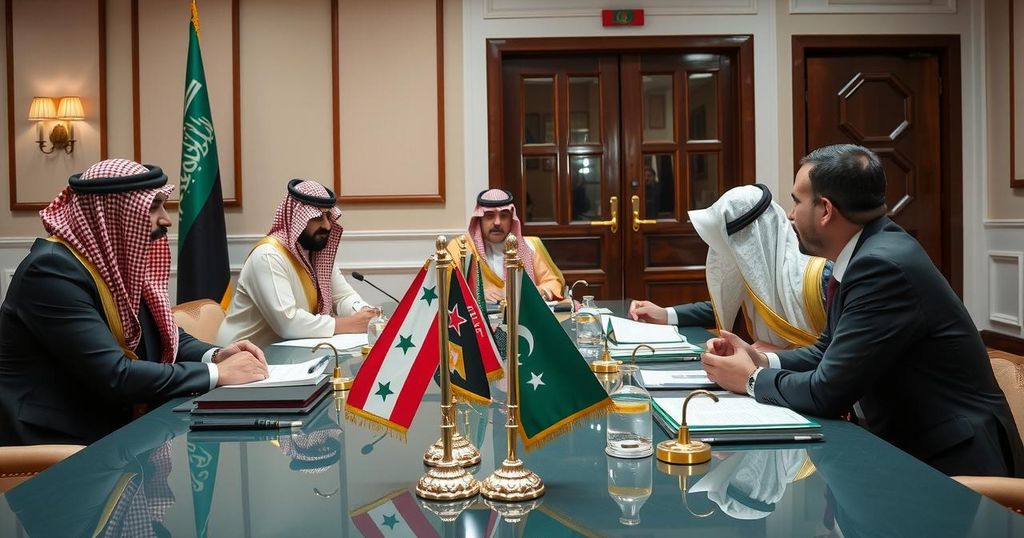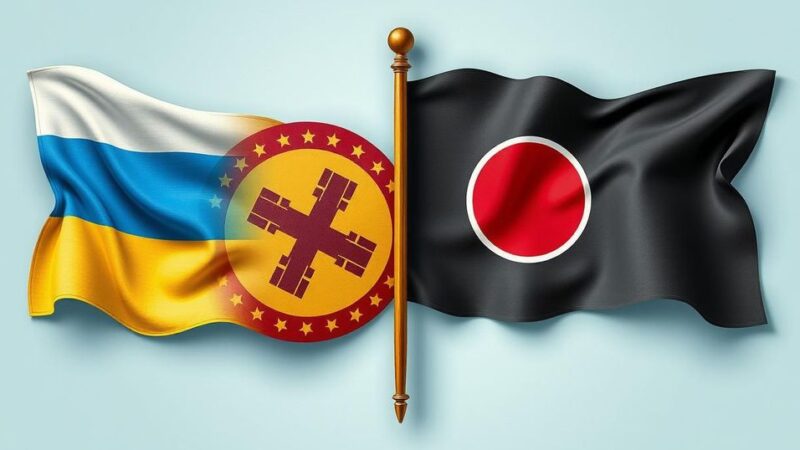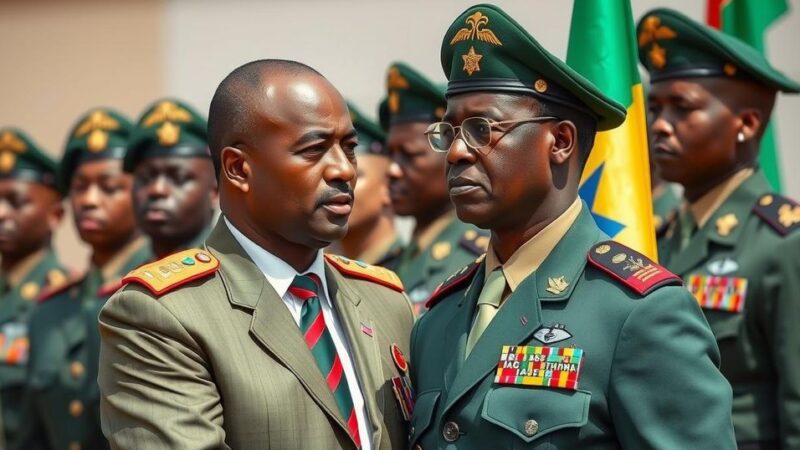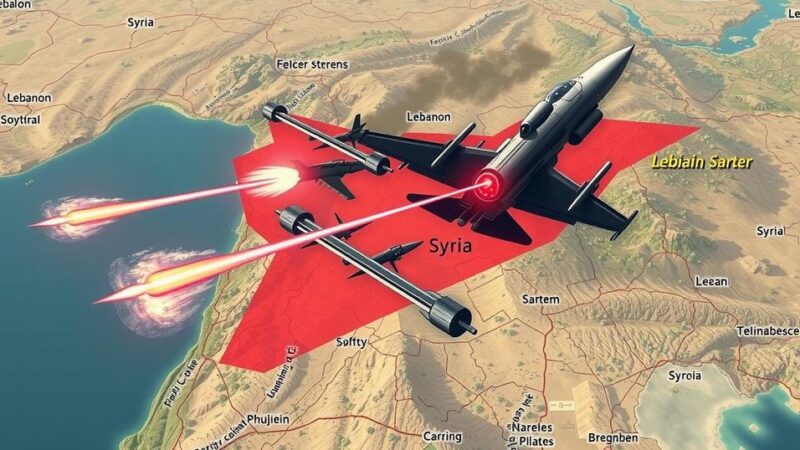Arab and EU diplomats gathered in Riyadh to discuss support for Syria after the fall of Bashar al-Assad. The talks include potential sanctions relief as Syria’s new leader seeks to stabilize governance. Saudi Arabia aims to play a leading role in Syria’s recovery, while addressing challenges related to sanctions and extremist factions within the new administration.
In Riyadh, Saudi Arabia, top diplomats from the Arab nations and the European Union convened to discuss strategies for supporting Syria following the ousting of Bashar al-Assad. The sessions, which included representatives from Turkey, France, and the United Nations, focus on shaping a new governance structure under Syria’s newly appointed leader, Ahmed al-Sharaa, who is advocating for the alleviation of sanctions imposed on his predecessor’s regime. The ongoing Syrian conflict has drastically affected the country’s stability, resulting in the death of over half a million people and displacing millions more since 2011. The European Union indicated a willingness to reassess its sanctions contingent upon the new government’s commitment to an inclusive administration that upholds minority rights.
The article centers on the diplomatic discourse held in Saudi Arabia concerning the future of Syria in light of recent political changes. Saudi Arabia, aiming to enhance its influence in the region, hosted this significant meeting as part of a broader effort to stabilize Syria post-Assad. The gathering reflects the international community’s desire to establish a cooperative approach towards ensuring a peaceful transition and governance in Syria while addressing humanitarian needs following years of civil strife.
The summit signifies Saudi Arabia’s heightened engagement in Syrian affairs, aiming to coordinate efforts for recovery and stability in the war-ravaged nation. While the involvement of various nations emphasizes a collective approach to support Syria’s transition, significant challenges remain, particularly concerning the enduring impact of sanctions and the management of extremist elements within the new leadership. The outcome of this dialogue will be crucial for the future of Syria and regional geopolitics.
Original Source: www.france24.com







